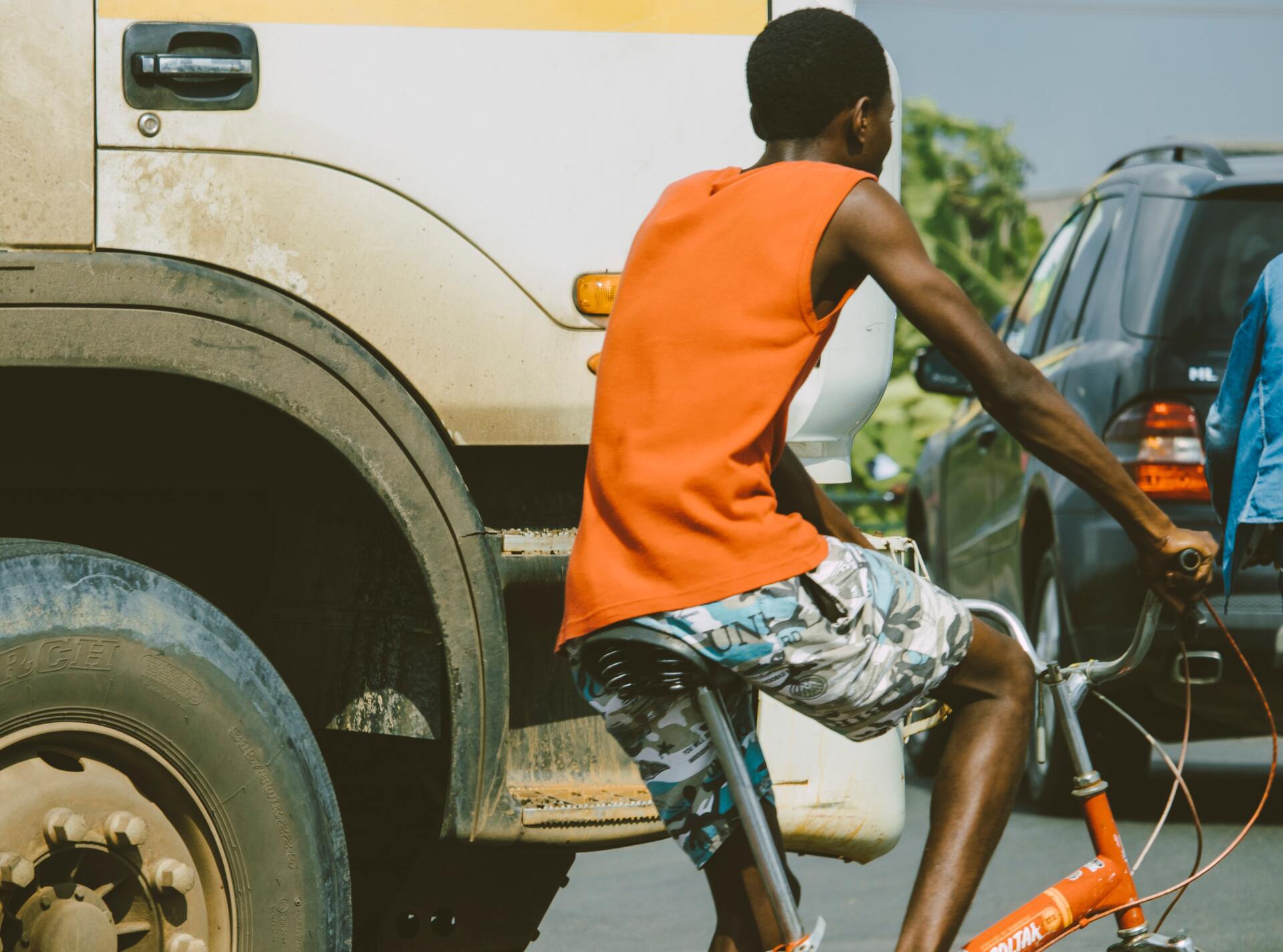Using Education to Multiply Impact and Create Peace
Julia Rigney • 21 April 2021
Lessons Learned at Management International University.
One question that we here at MIU think about regularly is this: how can education multiply impact and create peace?
This topic is a complicated and multi-layered web of systems and histories and cultures and identities all woven together in varied ways, so while our years of work and research just barely scratches the surface, I want to share with you some of the lessons we’ve learned at MIU, and my hope is that you will leave thinking about how your organization can shift and grow to advance and support peace in your own spheres of influence around the world.
First, a little bit about MIU. Management International University is the education wing of a larger organisation called the International Communities Organisation. We currently focus on offering short-courses in Business topics such as entrepreneurship and management. While our course content is housed entirely online, we typically work in a blended model with local partners, which we’ll talk more about in a few minutes. Now zooming out to the big picture of international communities organisation, ICO’s sole focus is to give people a platform to express their self-determination claims peacefully. It’s about giving a voice to those who believe they don’t have the opportunity to express their cultural, political or economic rights, regardless of whether we or others believe that they are justified or not.
Our organisation continues to shift and iterate as we learn and grow, but today we’ll share 5 lessons we’ve learned in our work and peace research so far and how we are seeking to implement these lessons into our future work:
1. Education needs to be affordable and accessible to the community.
Education can only be inclusive if 1. Students can afford it and 2. Students can access it, because as soon as it is unaffordable or inaccessible it also becomes exclusive. So, for MIU this means working locally. We choose strategic locations in strategic regions and we focus all of our efforts on first understanding the needs and then setting up specialized local learning hubs where we can help meet those needs and educate those who have been affected by conflict. We believe that bringing marginalised students together from different sides of the community, such as in our work in Jerusalem, can empower them to construct shared visions for a better future in their city. Right now our biggest focuses as an institution are in Yaounde, Jerusalem and Kosovo (all conflict-affected cities). We are fortunate to have some incredible funders who believe in the mission of ICO and have supported our efforts since the beginning, which has helped us keep costs very low, however we also have a fundraising position within the company that works to acquire grants and other funding to support our work in these regions.
2. Working alongside other NGOs, local universities and other community organisations is key to reaching those marginalised.
To achieve accessibility, we have found the greatest success in partnering with local organisations already doing work on the ground, such as other Universities, NGOs or nonprofits. These institutions help us to reach the key learners in previously marginalized communities where they are already at work. In some regions this means those directly affected by conflict such as refugees, while in other regions this looks more like universities with students who want to learn but don’t have the funds or perhaps the ability to study full-time. In all of these partnerships we can link up with them and support the work they are already achieving, augment and shape their education efforts by implementing MIU’s current course suite, and benefit from their expertise in the tensions, pressure points and specific needs in that city. We also work within our partners’ networks to help source and create opportunities for our students, which leads to our next point:
3. Teaching vocational skills and helping provide pathways to jobs and internships is critical.
And why is this? Because MIU understands that, for most people, education cannot be an end. It has to lead to a job, to employment that supports individuals and their families. So on a micro-level, MIU focuses our courses on providing relevant skills that will help students get a job, and then we seek to use our partners and networks through ICO to provide internships or job placements for students to actually practice the skills they’ve learned and to focus on interpersonal workplace skills. So while we already have our basic business certificate courses in place, we are seeking to add other courses and skills trainings to our programs, specifically geared towards job readiness. Now when we zoom out to look at the macro-level, the research around conflict-affected areas and divided communities shows that poverty and low-income increases the likelihood of conflict. In a Disarmament, Demobilization and Reintegration (DDR) programme in South Sudan, it was shown that access to job training significantly increased an ex-combatant’s life satisfaction. However, the next challenge was that only 54% of the ex-combatants who received training were able to find a steady job[1]. And then there was also a really interesting experiment in Liberia which showed that a small increase in income of approximately 40 cents led to a significant decrease in the number of ex-combatants that participated in illicit employment and crime[2]. These studies show that overall economic development and growth can have a positive impact on the reconciliation process and mitigate “spoilers” in the reconciliation process. And we unfortunately don’t have time to go into this in depth, but alongside working to build these pathways on a local level, we also work with an impact investment fund which has the ability to invest millions of dollars into these regions for this larger macro-level purpose of job creation and economic regeneration as part of the reconciliation process, because this can reduce the risk of individuals turning to or returning to conflict.
4. Teaching needs to address components of the local, cultural, societal issues throughout the topics being discussed.
The research shows that badly-organised, low-quality education can contribute to conflict escalating, so the classroom suddenly becomes an incredibly important place where mutual trust and tolerance must be developed. Working to ensure quality throughout our courses and programmes is what led us to ASIC in the past year and we’re so grateful for their support of our work. Another basic, but critical way that we work towards addressing these topics in the classroom is by hiring local knowledegable teaching assistants and tutors in the cities where we are working. If there are divides around language, such as in Cameroon where the tension is split between the English speaking anglophones and French-speaking francophones, then we hire someone who is bilingual and ideally has connections to both sides. We believe that these teachers are keys to making our courses relevant to the local community (through the ability to take standardized materials and contextualise them) and also because they can apply their own background and experiences into the material to bring it to life for the students in a respectful way. So we take our hiring processes very seriously, and this “life experience” and cultural background is an important part of the hiring process. In addition, we are working with some reconciliation experts to improve our “data collecting” phase by using surveys, interviews and other mechanisms to better understand the greatest challenges faces by the local communities so that we can work to build trust and better engage with the community on an individual level through our courses.
5. Work to change the bigger picture.
As we’ve already discussed, education is always situated within a complex web, tied not only to the local players we’ve already discussed, but also to the local and national government and policy makers, investors in the region and multinational corporations, as well as micro-companies and small entrepreneurs… So change happens when all of these cogs are turning in positive directions together, and that’s why International Communities Organisation will be building the ICO Vienna Institute, launching in 2025, as a hub to bring together diplomats, academics, lawyers, policy practitioners, researchers and representatives of organisations to create a consortium of experts all focused on one goal: a more peaceful and just world. This campus will be a fully equipped physical home for both ICO and MIU where we will continue to train students at our full-scale university while also furthering our work to impact the big picture through research, advocacy and capacity building for conflict-affected areas.
A Complex Conflict Requires Complex Solutions
What we know is that conflicts have complicated causes. They come from tensions woven by complex social, political, economic, environmental, cultural dynamics and it is a huge task to begin to pull these apart to work towards solutions. However, MIU and ICO believe that those communities of tension oftentimes hold the keys to unlocking their own conflict and reconciling between one another, but they need support and access to tools and resources that can help them to construct a shared vision for a better future. We believe that through thoughtful education, through partnering with those on the ground who know the community best, and through working alongside these partners to make a change in the larger context, we can play a small role in helping these communities to reach more cohesive positive futures together.
If this is something that you may be excited about being a part of, please reach out to us. ICO and MIU are looking for new partners passionate about education, conflict resolution, social justice and human rights to join us now and later at our campus in Vienna to accomplish our mission together.
[1] Phayal, A. Khada P. and Thyne, C. (2015). “What Makes Ex-Combatants Happy? A Micro-Analysis of Disarmament, Demobilization and Reintegration in South Sudan,” International Studies Quarterly.
[2] Annan, J. and Blattman, C. (2015). “Can Employment Reduce Lawlessness and Rebellion? A Field Experiment with High-Risk Men in a Fragile State,” National Bureau of Economic Research.
[3] Braithwaite, A., Dasandi, N. and Hudson, D. (2014). “Does Poverty Cause Conflict? Isolating the Causal Origins of the Conflict Trap,” Conflict Management and Peace Science.
[4] Thompson, Stephen (2015). "Links Between Education and Peace," GSRDC.org Governance Social Development Humanitarian Conflict.

